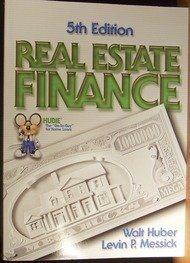

7. The computation and interpretation of the degree of combined leverage (DCL) You and your colleague, Annie, are currently participating in a finance internship program at Carter Chemical Company. Your current assignment is to work together to review Carter's current and projected income statements. You will also assess the consequences of management's capital structure and investment decisions on the firm's future riskiness. After much discussion, you and Annie decide to calculate Carter's degree of operating leverage (DOL), degree of financial leverage (DFL), and degree of total leverage (DTL) based on this year's data to gain insights into Carter's risk levels. The most recent income statement for Carter Chemical Company follows. Carter is funded solely with debt capital and common equity, and it has 2,000,000 shares of common stock currently outstanding. This Year's Data Next Year's Projected Data Sales $60,000,000 $64,500,000 Less: Variable costs 36,000,000 Gross profit 38,700,000 25,800,000 12,000,000 13,800,000 24,000,000 12,000,000 12,000,000 Less: Fixed operating costs Net operating income (EBIT) Less: Interest expense 1,200,000 1,200,000 Taxable income (EBT) Less: Tax expense (40%) Net income Earnings per share (EPS) 10,800,000 4,320,000 $6,480,000 12,600,000 5,040,000 $7,560,000 $3.24 $3.78 Given this information, complete the following table and then answer the questions that follow. When performing your calculations, round your EPS and percentage change values to two decimal places. Carter Chemical Company Data DOL (Sales = $60,000,000) DFL (EBIT = $12,000,000) DTL (Sales = $60,000,000) Everything else remaining constant, assume Carter Chemical Company decides to convert its labor-intensive manufacturing facility into a capital- intensive facility by laying off over 75% of its labor force and replacing the workers with robotic and technologically advanced manufacturing equipment. Assume that, over the next five years, the wages saved as a result of the layoffs will pay for the changes made to Carter's plant and equipment changes. How would this affect Carter's DOL, DFL, and DCL? The DOL would be expected to The DFL would be expected to The DTL would be expected to 7. The computation and interpretation of the degree of combined leverage (DCL) You and your colleague, Annie, are currently participating in a finance internship program at Carter Chemical Company. Your current assignment is to work together to review Carter's current and projected income statements. You will also assess the consequences of management's capital structure and investment decisions on the firm's future riskiness. After much discussion, you and Annie decide to calculate Carter's degree of operating leverage (DOL), degree of financial leverage (DFL), and degree of total leverage (DTL) based on this year's data to gain insights into Carter's risk levels. The most recent income statement for Carter Chemical Company follows. Carter is funded solely with debt capital and common equity, and it has 2,000,000 shares of common stock currently outstanding. This Year's Data Next Year's Projected Data Sales $60,000,000 $64,500,000 Less: Variable costs 36,000,000 Gross profit 38,700,000 25,800,000 12,000,000 13,800,000 24,000,000 12,000,000 12,000,000 Less: Fixed operating costs Net operating income (EBIT) Less: Interest expense 1,200,000 1,200,000 Taxable income (EBT) Less: Tax expense (40%) Net income Earnings per share (EPS) 10,800,000 4,320,000 $6,480,000 12,600,000 5,040,000 $7,560,000 $3.24 $3.78 Given this information, complete the following table and then answer the questions that follow. When performing your calculations, round your EPS and percentage change values to two decimal places. Carter Chemical Company Data DOL (Sales = $60,000,000) DFL (EBIT = $12,000,000) DTL (Sales = $60,000,000) Everything else remaining constant, assume Carter Chemical Company decides to convert its labor-intensive manufacturing facility into a capital- intensive facility by laying off over 75% of its labor force and replacing the workers with robotic and technologically advanced manufacturing equipment. Assume that, over the next five years, the wages saved as a result of the layoffs will pay for the changes made to Carter's plant and equipment changes. How would this affect Carter's DOL, DFL, and DCL? The DOL would be expected to The DFL would be expected to The DTL would be expected to








